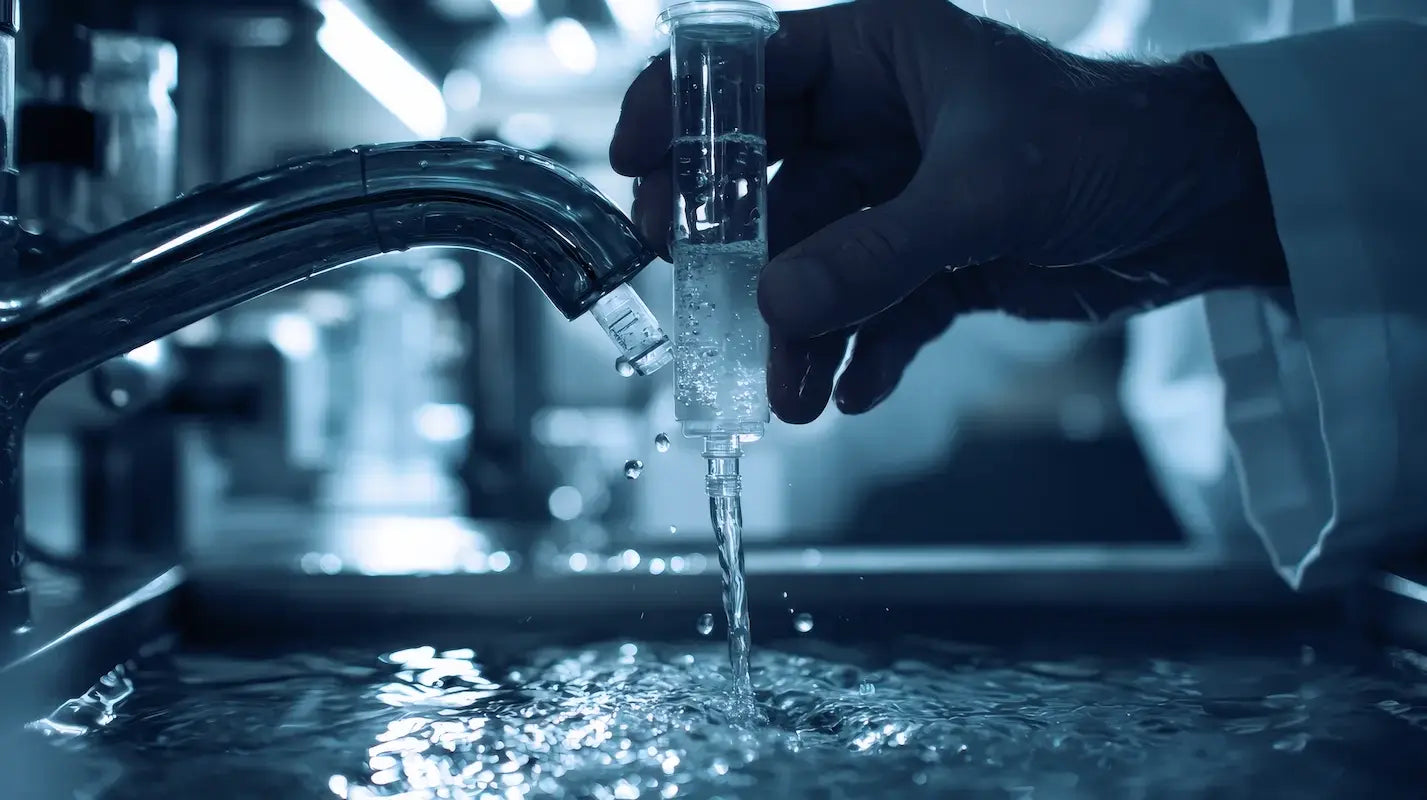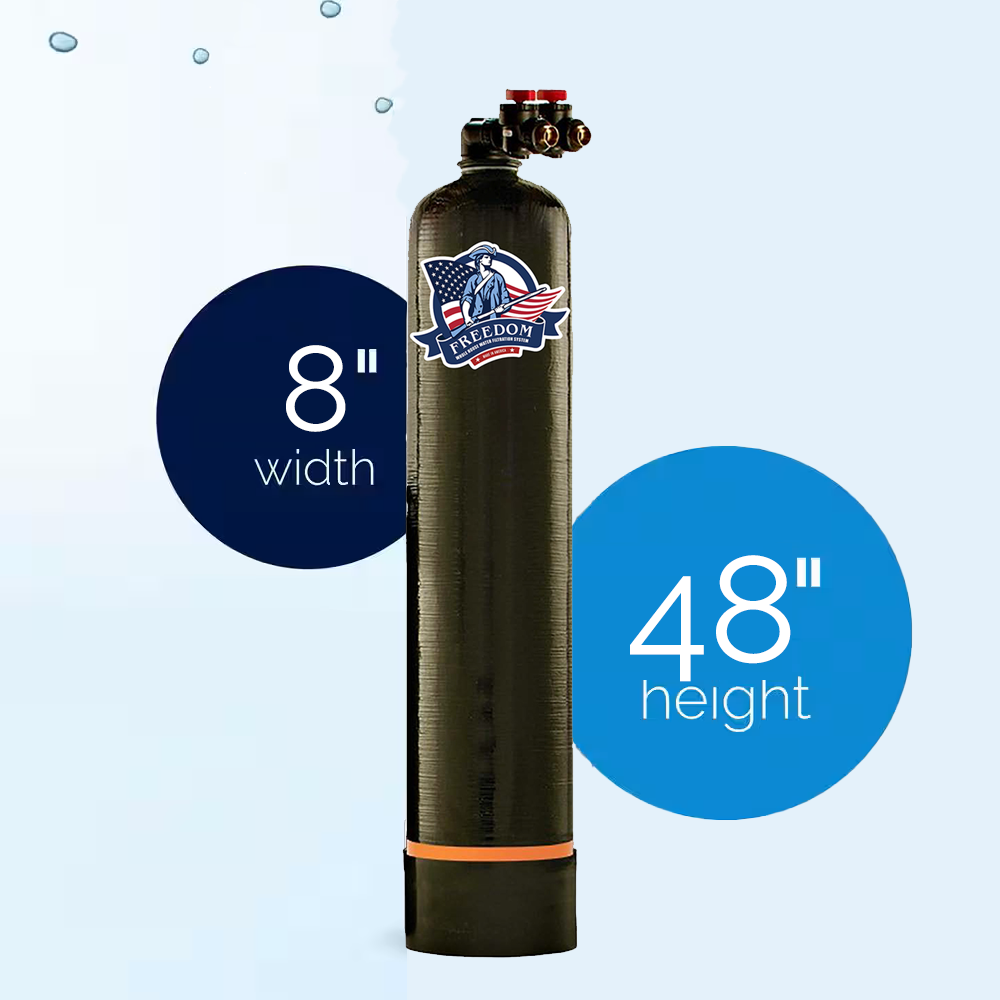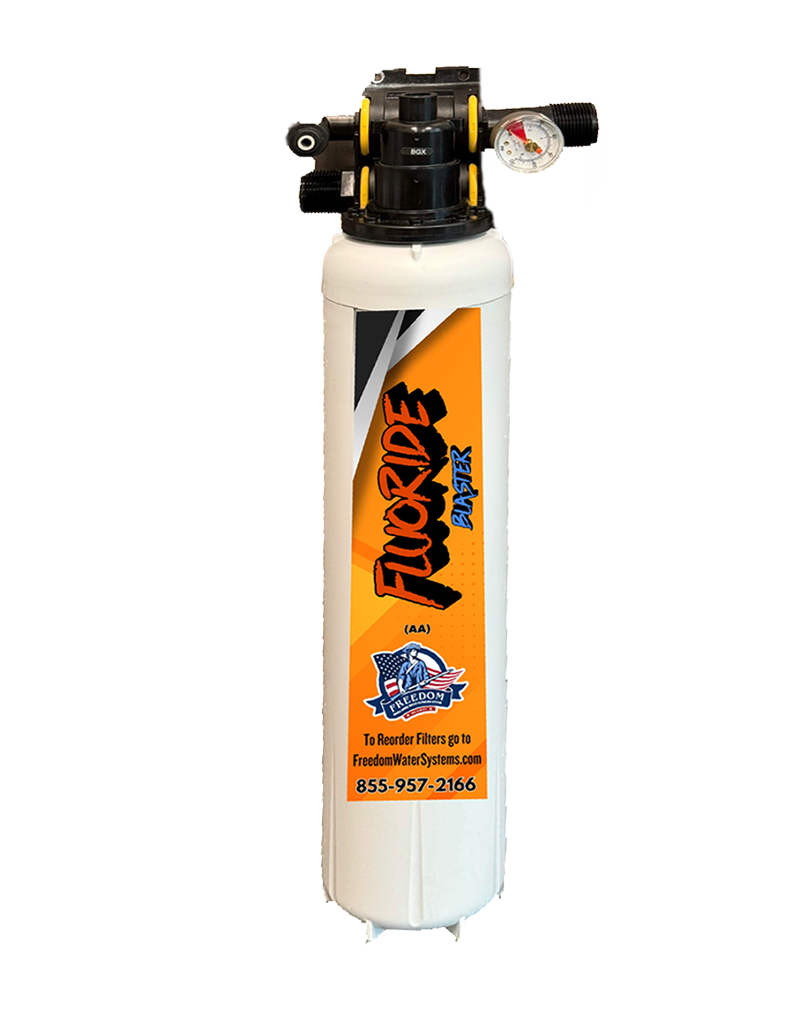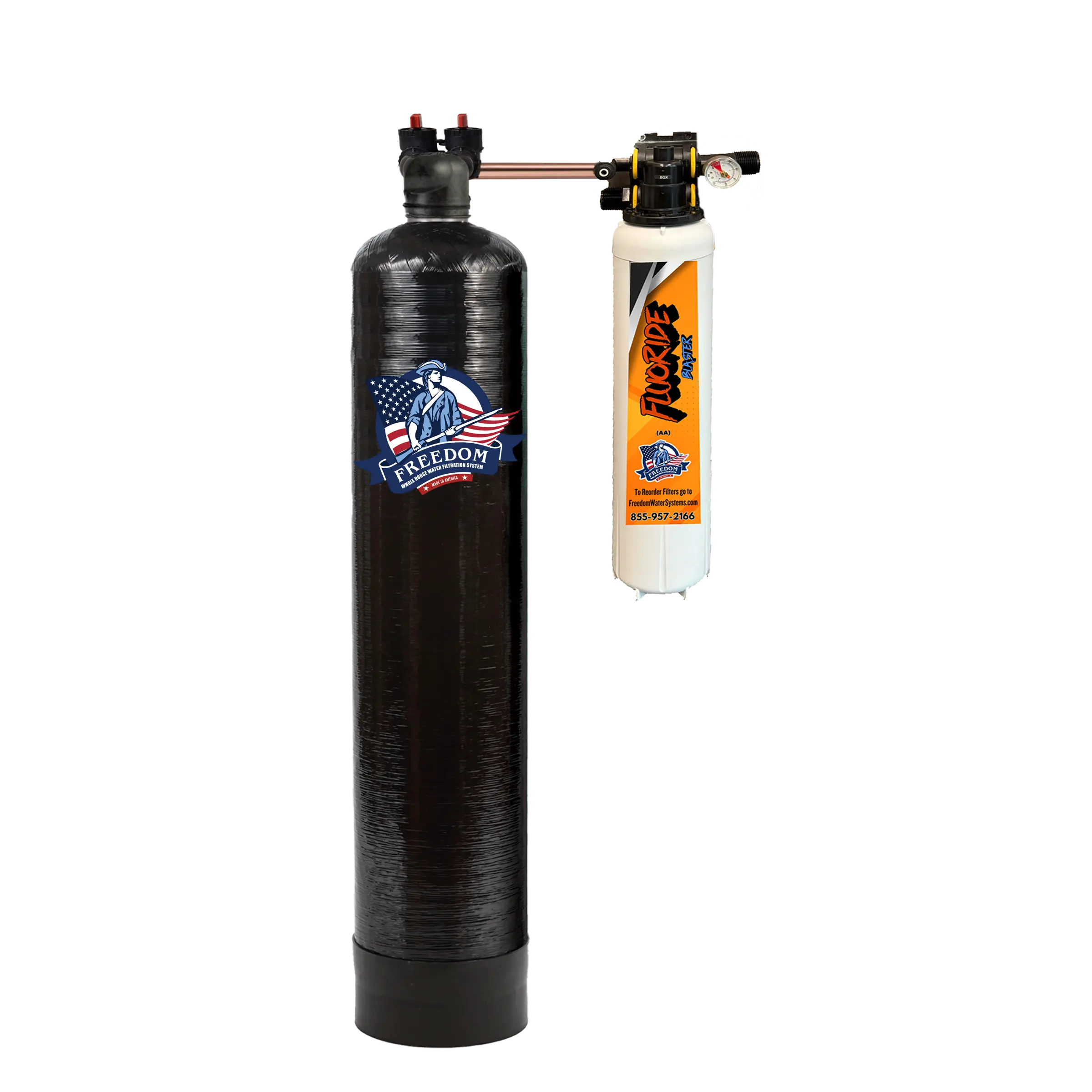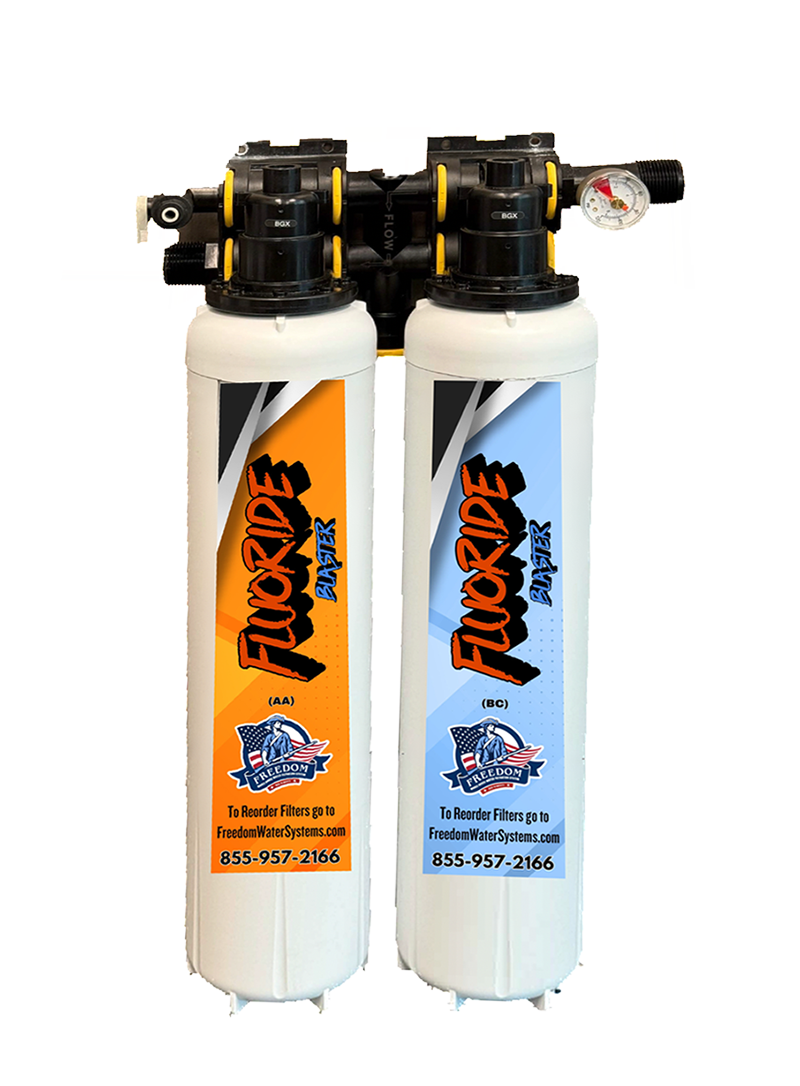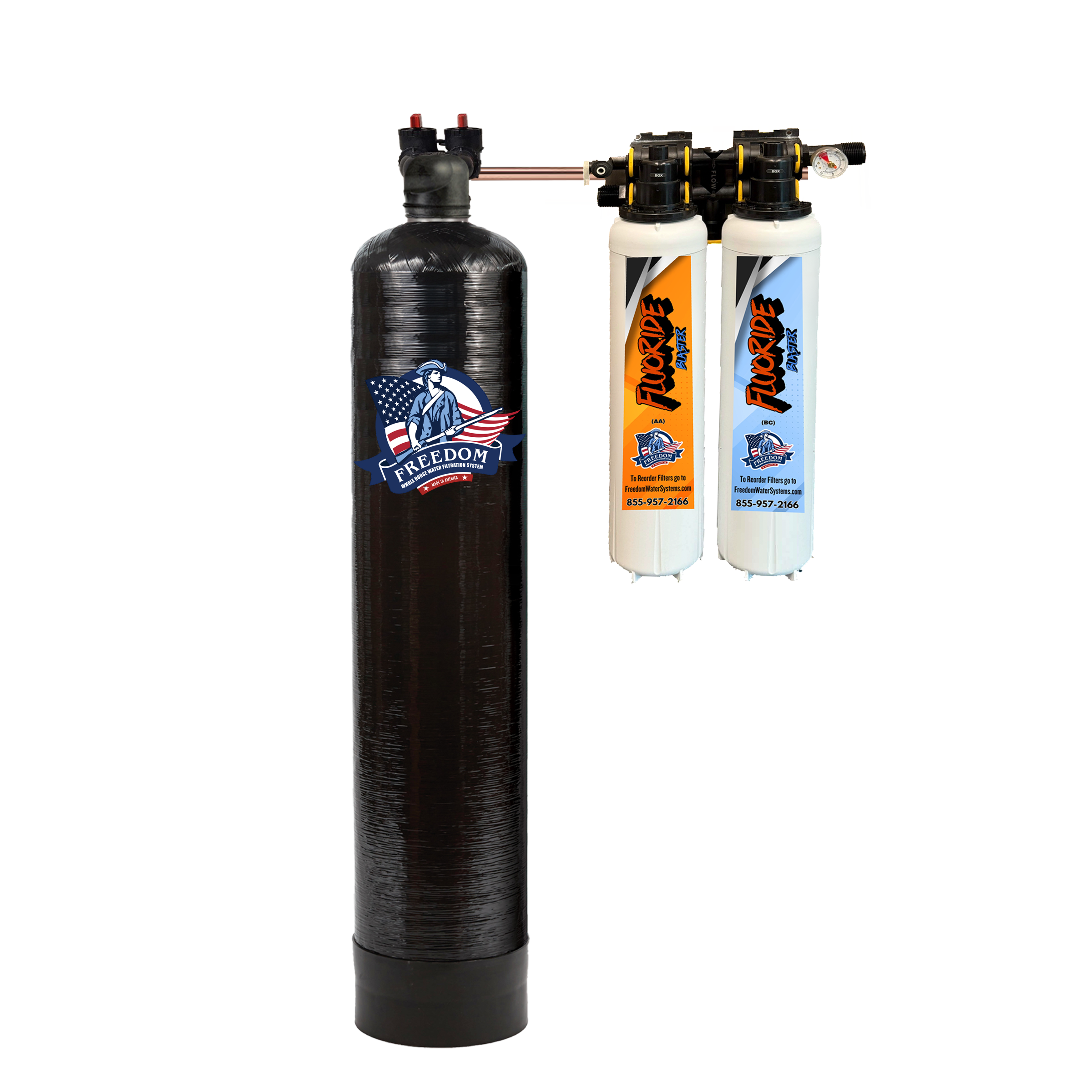-
"The Guardian" Whole Home Water Filtration System with Fluoride RemovalOn sale from $1,495.00
-
Fluoride Blaster 1000Regular price $995.00
-
Fluoride Blaster 2000Regular price $1,495.00
-
Home Filtration System - The 4-Stage "Fluoride Series" Salt-FreeOn sale from $2,795.00
Fluoride Water Filter FAQs
What is the safest way to remove fluoride from my home's water?
Reverse osmosis (RO) is the most effective method, removing up to 95% of fluoride. Our whole house RO systems and fluoride-specific media filters provide a long-term, salt-free solution for fluoride reduction.
Is fluoride in water really harmful?
Many health experts and families are concerned about fluoride in drinking water. Long-term exposure has been linked to dental fluorosis, bone weakening, and possible neurological effects. If you're unsure about your levels, home water testing is the best first step.
Do whole house filters remove fluoride or just drinking water filters?
Our systems reduce fluoride throughout your entire home—every tap, not just your kitchen sink. That means safer water for drinking, cooking, bathing, and brushing your teeth.
Can I use a fluoride filter if I already have city water filtration?
Yes! Fluoride reduction systems work alongside other filters like carbon or sediment. We can help you choose the right combination to address all your water concerns.
How do I know if my water has too much fluoride?
You can review your local water quality report (CCR) or perform an in-home test. Elevated fluoride is common in some areas—especially where natural groundwater levels are high or fluoride is added during treatment.
Understanding Fluoride in Water
Fluoride is a naturally occurring mineral found in water, soil, and certain foods. It's commonly added to municipal water supplies to help reduce cavities. While low levels may support dental health, excessive exposure can lead to health concerns—especially in children and pregnant individuals.
Why Is Fluoride Added to City Water?
Most public water systems add fluoride through a process called water fluoridation, intended to prevent tooth decay. The recommended level in the U.S. is about 0.7 parts per million. While considered safe by health agencies, not everyone agrees with this practice—especially in areas where fluoride occurs naturally in high amounts.
Health Risks of Too Much Fluoride
Long-term exposure to high fluoride levels may contribute to:
- Dental fluorosis (white spots or discoloration on teeth)
- Skeletal fluorosis (joint stiffness and bone weakness)
- Potential neurological effects (studies are ongoing)
How Fluoride Gets Into Your Water
- Natural sources — groundwater can absorb fluoride from rocks and soil
- Municipal fluoridation — fluoride is added during water treatment
How to Remove Fluoride from Tap Water
- Reverse osmosis systems — remove up to 95% of fluoride and other contaminants
- Activated alumina filters — absorb fluoride and arsenic effectively
- Distillation units — boil and re-condense water, removing fluoride and minerals
Should You Test Your Fluoride Levels?
Yes. If you’re on well water or live in an area with known high fluoride levels, testing your water is essential. It helps you decide whether a whole house fluoride filter is necessary for your family’s health.
✓ Concerned About Fluoride in Your Water?
Our advanced whole house fluoride filtration systems reduce unwanted fluoride, improve taste, and protect your family from unnecessary exposure—no bottled water required.
